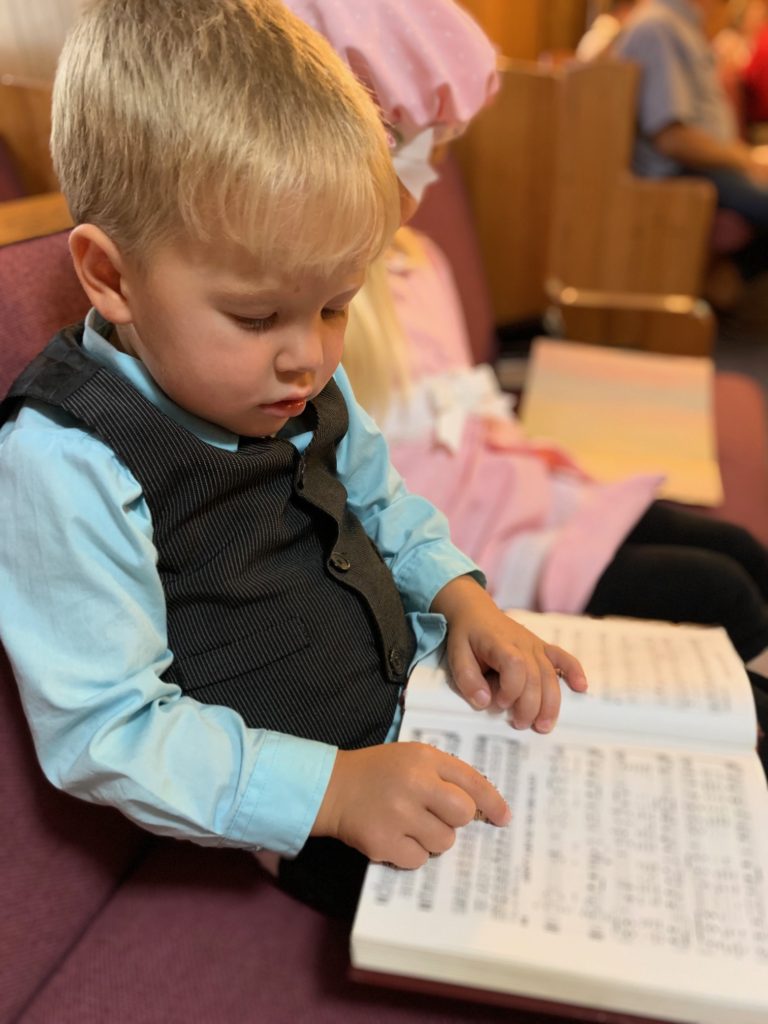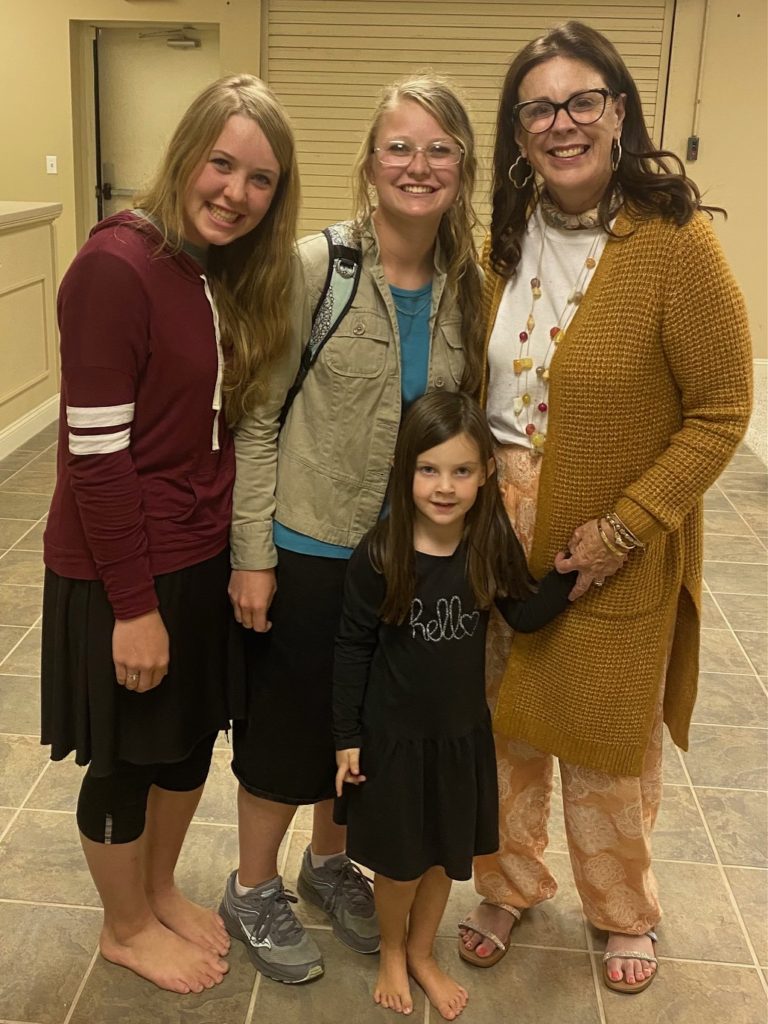
Have you ever been a part of a Body of believers that are so intense about particular doctrines that your conversations with those individuals became rigid? Maybe they don’t have room for flexibility in the convictions you hold and you have felt meticulously picked apart.
If you were anything like me in your early walk with Christ, you were hard on yourself (and others) to believe certain doctrines were required for your salvation when they really weren’t.
In my opinion, those doctrinal differences that we find ourselves discussing, I have found it to be a harmful way to hold someone else to the prerequisites that we feel are necessary for salvation.

Yes, doctrine is vitally important, God’s Word should be thoroughly studied, and needs to be taken seriously. But when I find myself in a deep conversation over the foundational doctrines of my Christian faith (e.g. Trinity, the virgin birth of Christ, His life and ministry, His burial and resurrection, salvation by grace through faith, not by works, etc.) my primary approach is to present absolute Truth to those I am around. Truth provides clarity when we may be blinded by Satan’s lies. As a result, upholding what we know to be true within the context of scripture is vital.
You can tell whether or not the other person has ears to hear. If they are open to hearing your key points on what God is teaching you too, then we can walk alongside our brothers and sisters learning as we go. If they aren’t receptive, standing in their “rightness” to prove a point to only become like sandpaper against your skin, we should agree to disagree. We then are able to walk away having the assurance of our own salvation. Because at the end of the day, the doctrine you hold is between you and the Lord.
As a mother, my greatest concern lies with shepherding and giving instruction to those under my charge, my children. Anything further, is really none of my business, and could potentially hold other people to a judgement that I have no right to be giving.

Jason and I have several sets of friends that attend different denominations, all of which are not deal breakers for a dividing line we hold in our friendship with them.
Scripture is clear that there are times for the dividing of the sheep from the goats, but be careful not to dismiss another Christian’s convictions of where God has them in their walk. We all have a different journey.
Because I receive emails and questions about this particular subject a lot and my answer ends up being repetitive, I decided there needs to be a permanent place in this space to which anyone can refer back to if need be.
Below are some of my doctrinal take-aways that I do not embrace as deal breakers in my assurance of salvation, the fellowship I have with other Christians, or in my personal friendships.
The first one being Baptism, including infant’s dedication to the Lord: The man on the cross next to Jesus never was baptized, but Jesus said he would enter the kingdom of Heaven. Should we be baptized? Certainly, we should. Jesus was. Baptism is an outward expression of a personal acceptance of Jesus Christ, the faith we have in Him, and the hope of eternal life. But holding someone to a standard of having to be baptized as a requirement to enter the gates of heaven is not mine to call. That is between them and Jesus.

Most of you know I was raised Catholic. I was sprinkled shortly after birth and my uncle, and aunt were named my God-parents. I have my own opinion on this that I won’t go into here, but when I became an adult, it became very important to me to reevaluate my stance on baptism.
Side note: As you can see in this photo of Jason and one of our children, we don’t believe you have to be a pastor or have a specific title to baptize your children either. That would be a preference one has.
Predestination: I know this is a highly controversial topic and that’s okay. I won’t go into the doctrine of election here, but my interpretation of predestination isn’t going to divide me from another Christian just because they may have a different perspective of what this means to them than it does me. We have to remember that it takes time to unpack the mysteries of the Bible and how God reveals scripture to each individual.
Eschatology and end times: It is a fact that Jesus tells us in Mark to “be watchful.” Revelation, a very difficult book to understand, has several references about the end times and “the perfect kingdom.” Amos spoke of “The Day of the Lord.” I could go on and on about this, but Scripture makes it clear that we are continuing toward an end, but it definitely isn’t something to squabble about within a Body of believers. I think allowing healthy discussions on this subject is quite fun and it may bring forth some thought-provoking conversations that our children can learn from.

Church traditions, institutions, and structure: Anchoring you and your family in a church home that sets the tone for godly conduct, sound doctrine, presents the gospel of Jesus Christ, and also reiterates the role of the family is a priority for both Jason and me.
First and foremost, The pastor needs to set the culture within his church body. Some of the most healthiest of churches, you see this overall tone being portrayed from the leadership. Jason and I have witnessed pastors either being too passive or having too much control. Neither are healthy. Pastors have this unique challenge in leading a wholesome ministry balance from the pulpit. We live in a culture that parades a growing disdain for authority, and it’s vital that he takes the lead on shepherding his flock with care and concern. Too many ideas and attitudes can easily creep in, and begin to set a different tone for the congregation. But the Biblical pattern for all churches should be approached with servant leadership from a multitude of godly men responsible for its congregants. The church will grow when you see that type of spiritual maturity coming from the leadership. But if this balance isn’t presented and you witness the sowing discord among the brethren, these churches split, and will ultimately die out.
Number two, holding tight to church structure and traditions can create rigidity, and it isn’t even the point. Jesus told us not to do this either. At the end of the day, you’ll never find a church you agree with 100%. So, if you have sought the right counsel, and still find yourself at odds with how this particular church is governing themselves, you can always find another Body of believers that does line up with your standard, and the convictions you hold in your family.

Spiritual gifts: Having discernment in this area has been helpful to me. In 1 John 4:1, he tells us to test the spirits. Acts 2, 16:16, 17:11, 1 Corinthians 12:29-30, 1 Corinthians 14. I encourage you to examine the scriptures for yourself. Testing our own lives, our experiences, and our understandings against the Word of God is where we find these answers.
What I do know for sure is when I do not have clarity in a certain area of scripture, instead of promoting or rejecting something that I’m not fully clear on, I need to have spiritual sensitivity in that particular area. I have a handful of women friends that believe in speaking of the tongues. This is not my stance on the interpretation of scripture, but it would never be a deal breaker for me to draw a line in our friendship, or for one’s salvation.
New earth, old earth: I don’t feel like I have to go into this too much but Genesis 1:1-31 is enough evidence for me. Creating internal strife in the church over the age of our earth is pointless to me and Satan loves when Christians create division with these issues. It gets us absolutely nowhere in a hurry, and you can always agree to disagree. Because the reality is, it’s not a deal breaker for my salvation, nor theirs!

True brothers and sisters in Christ may hold a different standpoint than you on the non-deal breakers. From where we attend church on Sunday morning, to the daily foods we eat, whether or not we believe in a 6-day creation, our viewpoint on being sprinkled or fully submerged, pastor or father-led baptism, pre millennial or post millennial, being a cessationist or a continuist, a Baptist or Pentecostal, Reformed or non-denominational, or just simply how we go about living our daily lives all can look drastically different among Christians.
I’ve heard all sides. Some have fair arguments. Some have truths that are valid. Sometimes it isn’t always possible to agree on matters, and other times it is. That is the reality of life because not everyone’s interpretation will be the same.
The scriptures that I find truly hard to 100% understand, I leave room for me to be wrong or to be proven right. The only one who can do that in my life is Christ. It doesn’t mean when I have healthy debates with others that I am fully right, or that the other person is fully right either.

I know where I stand today, and I continue to leave room for God to reveal to me what He wants. Wearing certain labels won’t get me to heaven. My salvation hinges on the free gift of salvation in my faith in Jesus Christ, and what He did on the Cross.
So even though I have a set belief on doctrine, none of those should ever be the cause for me to have disunity within the Body.
I am very grateful that my friendships have variances because we all have unique abilities and giftings that we can contribute to furthering the gospel of Jesus Christ, but only when we can come together as one body. Jesus, the Savior of the world, is the commonality that unites all Christians.
Romans 12:18 says, “If it be possible, as much as lieth in you, live peaceably with all men.”
Bottom line, we all have a journey with the Lord that is separate from another. Our allegiance is to Him, and Him only. We walk by faith, go to prayer for guidance, and soak ourselves in scripture to better our understanding the will He has for each family.
Here are some other helpful scriptures that I lean on.
Mark 9:50 “Salt is good: but if the salt have lost his saltness, wherewith will ye season it? Have salt in yourselves, and have peace one with another.”
1 Thessalonians 5:13 “And to esteem them very highly in love for their work’s sake. And be at peace among yourselves.”
Romans 12:16 “Be of the same mind one toward another. Mind not high things, but condescend to men of low estate. Be not wise in your own conceits.”
Romans 14:19 “Let us therefore follow after the things which make for peace, and things wherewith one may edify another.”
Ephesians 4:29 “Let no corrupt communication proceed out of your mouth, but that which is good to the use of edifying, that it may minister grace unto the hearers.”
In His Grace,
Natalie